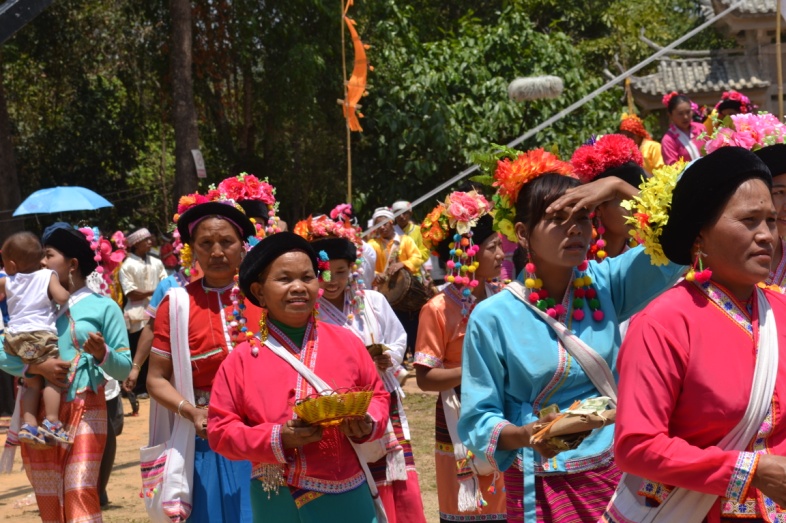Blang worship tea spirit in ancient ceremony
- By Corey Cooper
 0 Comment(s)
0 Comment(s) Print
Print E-mail China.org.cn, April 24, 2012
E-mail China.org.cn, April 24, 2012
|
From Apr. 12 to Apr. 19, China.org.cn reporter Corey Cooper travelled to Xishuangbanna Dai Autonomous Prefecture and Lancang County, Pu'er Prefecture in southern Yunnan Province to report on the Dai and Blang New Year celebrations as well as pu'er tea production. This is part one in a two-part series. |
|
Don't miss |
Each year on the dawn of the Blang New Year in Mid-April, Su Guowen, prince and spiritual leader of the Blang people (Chinese: 布朗族 pinyin: Bulangzu), makes a pilgrimage with his fellow tribesman to the top of the sacred tea mountain near Mangjing Village, part of Lancang County in Pu'er City, Yunnan Province. Drawing sacred water from a mountain spring and transporting it in large bamboo tubes, he and the Mangjing village elders use the water to perform thousand-year-old animist rituals to worship the Spirit of tea, as well as Nan Fa and Ai Leng, the ancestral princess and prince of the Blang people.
Villagers bring nuo mi, sweet sticky rice wrapped in bamboo leaves, as offerings to place on the altar of the temple at the village's center. Villagers use water soaked in tea leaves to wash the gilded statues of Nan Fa and Ai Leng in the temple. After paying their respects at the temple, villagers chant and dance wildly around a totem-pole-like structure at the center of the village. Following the dancing, Prince Su and the village mayor give a customary New Year's speech to the attendees. Later on in the day, the entire community returns to eat a celebratory meal with relatives and friends, followed by much singing, dancing, fireworks, and merrymaking well into the evening.






